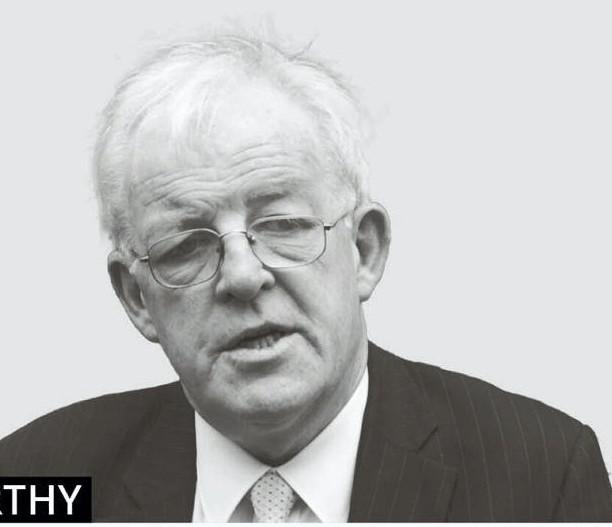October’s budget will be a giveaway, incorporating new expenditures and tax reliefs accompanied by protestations of caution. The justification is the need to respond to a once-off adverse event, in this case the surge in inflation sparked by rising energy prices. Since there can be no domestic remedies to an imported inflation, the strategy is to borrow more and hope for the best. The policy needs to be sustainable, not just to the financial markets, but also to the public, which ought to fear a policy reversal if the wheels come off.
The modern State sometimes uses budgetary resources, including tax revenues and borrowing, in order to act like a giant insurance company. When misfortune strikes either a specific group in society, say with flooding or a crop failure, or everyone with recession or imported inflation hurting real incomes, the State is impelled to take action.
Victims of uninsured specific misadventures expect compensation. Governments stand ready to run fiscal deficits to minimise the impact of general economic downturns and the COVID-19 pandemic induced governments around the world to offer temporary supports to employees and business firms. They borrowed heavily to finance these interventions.
When misfortune strikes either a specific group in society, say with flooding or a crop failure, or everyone with recession or imported inflation hurting real incomes, the State is impelled to take action
The specific compensation schemes offered to narrower groups can also impose huge exchequer burdens. Recent examples in Ireland include the mica rebuilding grants, expected to cost €2.7bn for householders in Donegal and other counties on the western seaboard who built their homes using dodgy bricks and were unable to recover from the suppliers. It has just been acknowledged that an even higher sum, €2.8bn, is the estimated cost of compensating people who bought apartments, mainly in Dublin and other urban areas, which have failed fire and other safety checks.
The homeowners were again unable to find anyone to sue. In both cases, there was inadequate liability insurance in place, or none, and the State stepped in.
There have been other examples, including a controversial scheme in the Sandymount area of Dublin, which experienced extensive flood damage to residential and commercial premises in 2002 and again in 2011. Some people had not insured their premises but were compensated regardless, which is why the scheme was controversial.
This is a recurring criticism whenever one-off interventions of this type are undertaken. Why were the risks not covered? Where are the firms which sold the dodgy bricks or who built apartment blocks carelessly and who have avoided liability? These one-off compensation schemes can be very costly, are discretionary where the State has no legal liability and appear to reflect the volume of political noise generated on each occasion. But whenever substantial numbers of citizens face financial hardship through no fault of their own, there will be loud demands for State intervention and, in any country with resources and a sense of social solidarity, the public will support compensation.
There will be loud demands for State intervention and, in any country with resources and a sense of social solidarity, the public will support compensation
Sometimes the State has a clear legal liability – the army deafness payouts would arguably have arisen anyway if the State was shown to have been a negligent employer, and victims of the mother-and-baby homes would have had a legal case as well as widespread public sympathy. State compensation in these cases would likely have arisen in any event through legal actions and a comprehensive scheme reduces the hassle and cost all round. Where defective buildings are the issue, local authorities could be held liable for inadequate inspections, although it is fair to ask whether the construction industry has been under-insuring for product liability.
Insurance
When discretionary compensation schemes arise from insurable events, the resort to the State is problematic. If the uninsured are provided with retrospective cover courtesy of the exchequer, the incentive to take out insurance, and to minimise product riskiness, is diminished. Home insurance is voluntary but motor insurance for third-party risks is required by law. If road accident cover was voluntary and the State covered all claims, nobody would insure their cars. Financially weak insurers sometimes go bust and can no longer meet claims even where cover has been formally provided.
It is comforting to believe that the State will act as an insurer of last resort, and that unforeseen misfortunes will be addressed. But there is a collective myopia involved. Nobody should feel relaxed with discretionary insurance underwritten, after the event, by some entity which might run out of money to meet claims. The political commitments to offer generous insurance are not backed up with premium income (recurring revenue) and reserves (assets or the capacity to borrow).
Instead, the Government, while embracing liabilities before they were even calculated, has big legacy debts, uncertain revenues especially from corporation tax and a declared willingness to dilute those revenues further in response to the inflation surge. If the Government was a regulated insurance company it would expect a warning from the supervisors.










SHARING OPTIONS